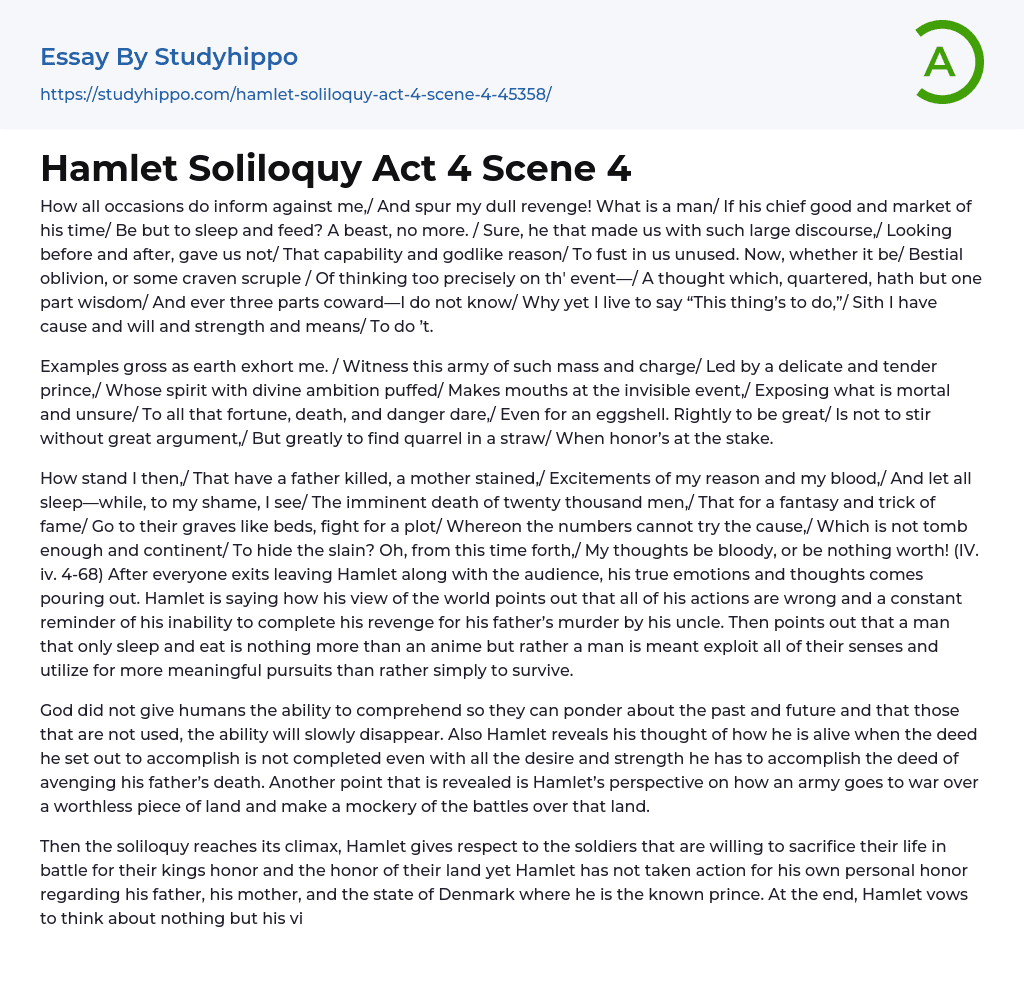How all occasions do inform against me,
And spur my dull revenge! What is a man
If his chief good and market of his time
Be but to sleep and feed? A beast, no more.
Sure, he that made us with such large discourse,
Looking before and after, gave us not
That capability and godlike reason
To fust in us unused. Now, whether it be
Bestial oblivion, or some craven scruple
Of thinking too precisely on th' event—
A thought which, quartered, hath but one part wisdom
And ever three parts coward—I do not know
Why yet I live to say “This thing’s to do,”
Sith I have cause and will and strength and means
To do ’t.
The passage presents inspiring examples that captivate me. It illustrates a large and formidable army supporting a weak and vulnerable prince. Contrary to expectations, this prince possesses a strong longing and resolute d
...etermination to achieve greatness. He fearlessly faces the unpredictable and capricious aspects of life, willingly exposing himself to any possible danger or risk that may arise from destiny, mortality, or dangerous situations, even for something as insignificant as an eggshell. Genuine greatness is not shown by acting without purpose but by fervently upholding one's integrity even in minor situations.
In the midst of his personal sorrow over his father's death and feeling betrayed by his mother, Hamlet reflects on the futility of war. He is frustrated that he has done nothing while twenty thousand men are about to die for an empty cause. These men are willing to give up their lives for something that ultimately holds no significance, as their graves cannot capture the true value of their sacrifice. Realizing this, Hamlet promises that his thought
will be focused on revenge or else they will be useless. Once everyone else has left the stage, Hamlet confides in the audience, sharing his sincere emotions and thoughts. He evaluates his misguided actions and constant reminder of failing to avenge his father's murder. Additionally, he contemplates how someone who merely eats and sleeps is no better than an animal; humans should use their senses for more meaningful pursuits rather than mere survival.
Humans were not given the ability to understand by God solely for them to contemplate the past and future. If this ability is neglected, it will gradually diminish. Furthermore, Hamlet ponders on his existence while failing to fulfill his intense desire and capability of avenging his father's death. He also ridicules the importance of battles fought by armies over a meaningless piece of land.
The soliloquy in which Hamlet reaches its climax acknowledges the bravery of soldiers willing to sacrifice their lives in battle, but Hamlet himself has not taken action to restore his personal honor regarding his father, mother, and the state of Denmark. In conclusion, Hamlet promises to focus solely on his violent and bloody revenge against his uncle, Claudius, for his father's death, dismissing any thoughts that are not violent as unworthy of consideration.




